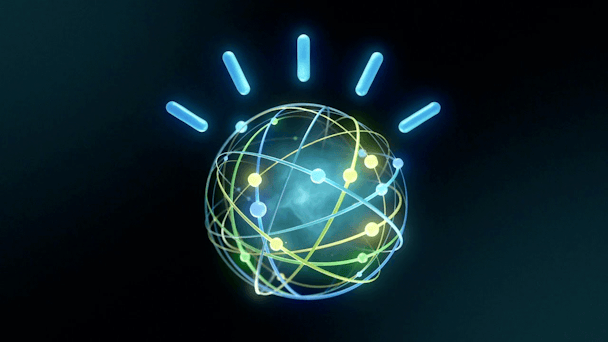Brands like Campbell’s and Toyota tap IBM's Watson to deliver ads that listen and respond – and eventually learn
As if humiliating humans on Jeopardy wasn’t enough, IBM’s Watson, a technology platform that says it uses natural language processing and machine learning to reveal insights from large amounts of unstructured data, is getting into the ad business.

Watson Ads enables consumers to talk to ads.
In fact, at the IAB Mixx conference in New York, Jeremy Steinberg, global head of sales at IBM’s The Weather Company, said Watson Ads, which he called “the next frontier in advertising,” will launch the week of October 3.
Beta partners include Campbell’s, GlaxoSmithKline (GSK), Unilever and Toyota.
IBM announced Watson Ads in June, saying it will enable consumers to interact with Watson via advertising, asking questions via voice or text and receiving relevant information about a product or offering.
In turn, IBM said Watson Ads will help marketers uncover consumer and product insights faster, “revealing connections previously invisible to human data scientists.”
According to Steinberg, much like Watson itself, Watson Ads can listen, think and respond, “enabling one-to-one communication between your brand and your customers at scale, which is pretty exciting.”
In turn, he said Watson Ads gives customers a better experience and brands more information about them.
Campbell’s, for example, will run ads for soup on the Weather Company when it’s cold, rainy and windy and consumers can ask Watson for related recipes.
“It’s talking to an ad and getting an answer to a question, which totally transforms the consumer experience,” Steinberg said.
For her part, Amy Benford, global media director at Campbell's, called Watson Ads “one-to-one marketing in the purest sense.”
Further, she said Watson Ads enables Campbell’s to understand consumers’ mindsets like never before and to better deliver the right product to the right consumer at the right moment.
“We’re not advertising at consumers – it’s with them, for them. There has to be a purpose, a value,” Benford said. “It used to be you could put an ad out there if you knew a bit about the target and you hope it stuck. You have to know who is on the other end of the ad, the mindset, what context…and through cognition, we hope to get more insight into behavior and what they’re thinking [and] need.”
According to Steinberg, while the ads will initially be targeted based on location and weather, Watson will learn over time and eventually refine its answers to help give companies like Campbell’s better information about customer needs and brand perception.
“It acts as a massive focus group to millions of people,” he said.
But it will take time for Watson to learn.
“It’s not like throwing an ad up and having it served and it just works,” Steinberg said. “There’s a lot of work that goes into it.”
What’s more, he said Watson Ads will expand into new categories over the next 12 months, like CPG, retail and auto.
Per Stephen Gold, chief marketing officer and vice president of business development at IBM Watson, the beauty of Watson is that it can understand, interact and learn naturally, Gold said.
“This is not simple search,” Gold said. “This is comprehension. It is understanding content, context and meaning.”
And, he noted, interacting with natural language is no small feat given the complexities of language, but is handy when you consider the scope of data consumers are bombarded with each day, which is the equivalent of about 170 newspapers.
This has profound implications in health, as well as in the hospitality industry with robot concierges, as well as in the arts, where Watson helps chefs discover new flavor combinations and designers like Marchesa come up with new dress designs and colors.
“We’re seeing it pop up from all walks of life. This is not the AI that Hollywood led us to believe,” Gold said. “These are not sentient beings and they won’t be for a long time. They don’t dream and Watson will never love you back.”

